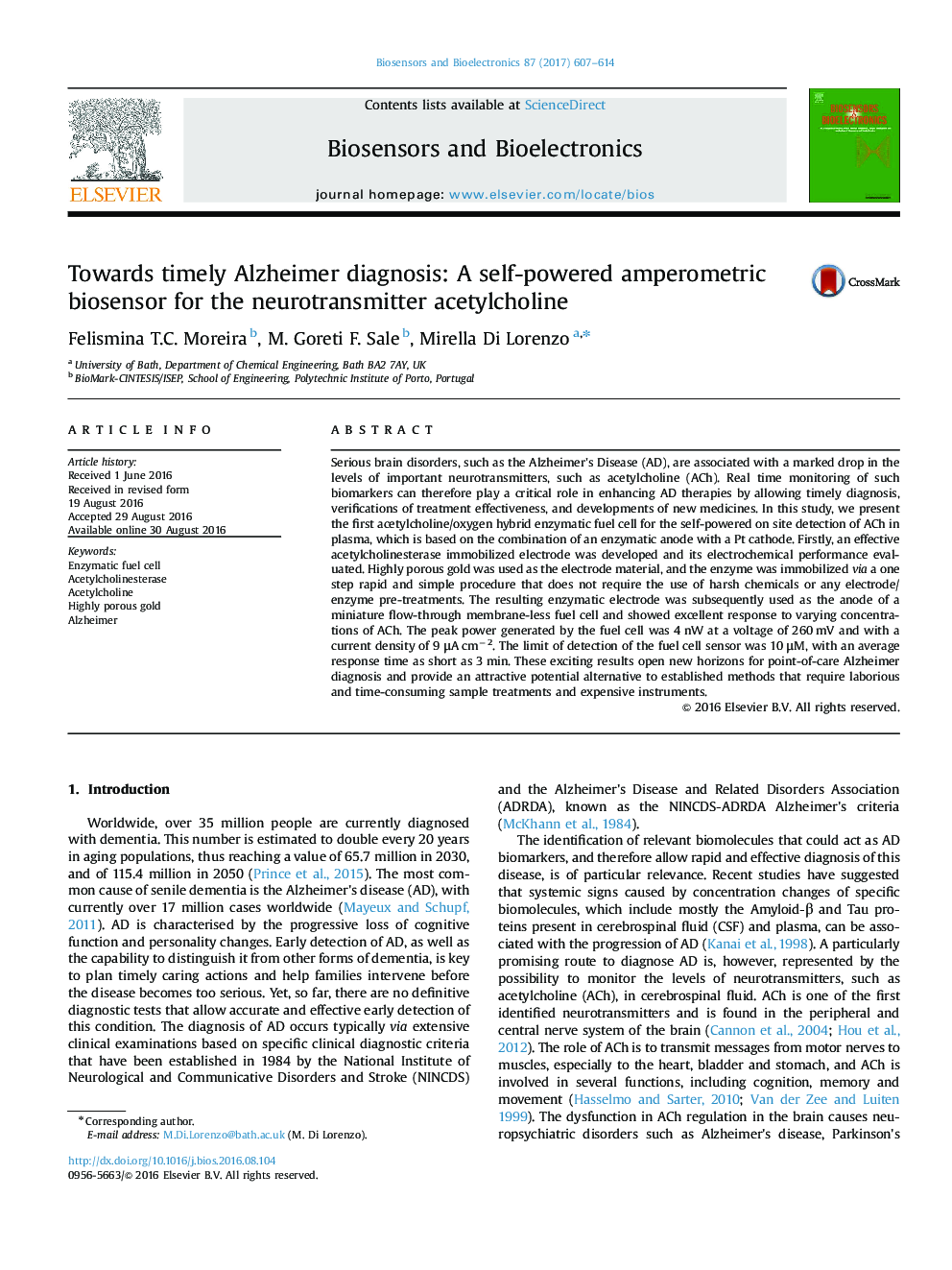| Article ID | Journal | Published Year | Pages | File Type |
|---|---|---|---|---|
| 7230279 | Biosensors and Bioelectronics | 2017 | 8 Pages |
Abstract
Serious brain disorders, such as the Alzheimer's Disease (AD), are associated with a marked drop in the levels of important neurotransmitters, such as acetylcholine (ACh). Real time monitoring of such biomarkers can therefore play a critical role in enhancing AD therapies by allowing timely diagnosis, verifications of treatment effectiveness, and developments of new medicines. In this study, we present the first acetylcholine/oxygen hybrid enzymatic fuel cell for the self-powered on site detection of ACh in plasma, which is based on the combination of an enzymatic anode with a Pt cathode. Firstly, an effective acetylcholinesterase immobilized electrode was developed and its electrochemical performance evaluated. Highly porous gold was used as the electrode material, and the enzyme was immobilized via a one step rapid and simple procedure that does not require the use of harsh chemicals or any electrode/enzyme pre-treatments. The resulting enzymatic electrode was subsequently used as the anode of a miniature flow-through membrane-less fuel cell and showed excellent response to varying concentrations of ACh. The peak power generated by the fuel cell was 4 nW at a voltage of 260 mV and with a current density of 9 μA cmâ2. The limit of detection of the fuel cell sensor was 10 μM, with an average response time as short as 3 min. These exciting results open new horizons for point-of-care Alzheimer diagnosis and provide an attractive potential alternative to established methods that require laborious and time-consuming sample treatments and expensive instruments.
Related Topics
Physical Sciences and Engineering
Chemistry
Analytical Chemistry
Authors
Felismina T.C. Moreira, M. Goreti F. Sale, Mirella Di Lorenzo,
